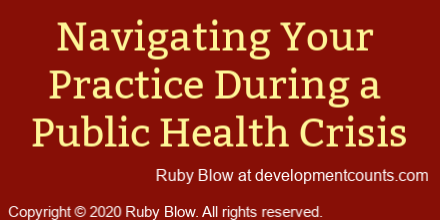Chronic Helpers Can Say “No”
Recently I wrote a social media post about setting limits on accepting lunch invitations. It is my sincere belief and experience that at different stages in one’s career, lunch invitations can be detrimental, just as they were beneficial at an earlier career stage. My intent is to support professional/chronic helpers in learning to say “no.”
Not surprisingly, one person seemed to take offense and expressed what she viewed as a “different opinion.” Of course this is the stuff social media is made of ….people bantering back and forth. Most of the time it doesn’t bother me. But this time it did. The opinion she stated was one I have heard before.
- That people in the field of private practice in mental health are withholding from one another.
- That we are proprietary and don’t want to share our resources or experience for fear of competition.
- That, as helpers with “a calling”, we can – and should – help everyone who asks us for help.
- That not helping someone by giving them your time is essentially self centered.
The basic assumption was that my statement to “think twice” before you accept lunch invitations was part of the problem in our field. A field in which people presumably don’t help one another without getting something in return.
I have to say that has not been my experience. What I have experienced is that people in private practice support one another. I’m sure that there are occasions where someone says “no” or another person feels rebuffed. But generally speaking, I think this stems from people asking for help from a cold start up.
The Struggle: Resentment & Burnout
If you are just meeting someone or would like to meet them and get to know them, then asking them to invest time in you or with you is a BIG request. Anyone who runs a business for a living, especially a service-based business, places a value on their time. The value is in part about your fee, but it is most importantly about what you did not do with that time because you gave it to someone else. Those who do not value their time will either not be in business long or they will struggle through out the life of that business.
The struggle is not only about money, but that is what it can look like on the surface. The struggle is in fact about “being okay” and to not have another person’s needs consistently supersede one’s own needs. Eventually this can lead to resentment and burnout…a powerful combination that can rob anyone of the passion they once had for helping others. Even worse, giving to others can be a method used to avoid tackling one’s own challenges.
- Yes, you can give to others and take care of yourself, but only if you hold value in self care.
- Only if you think about it and then set structures and limits to support self care.
- Only if you are not so quick to say “yes” but first truly consider what else is on your plate.
Others may give freely and frequently of their time and it is not “a cost” to them or their business for perhaps one of the following reasons:
- they don’t feel depleted by giving because they have a enough reserve energy in their tank (so to speak);
- they are actually setting limits and choosing wisely as I am suggesting;
- they have financial and/or other support for themselves or their family;
- they prefer saying yes…to saying no…and get a rush from helping others.
These are not bad things. I do not begrudge people giving of their time to others. Especially those who fit the descriptions I listed above.
Setting Limits
My stated sentiments are meant to encourage those who have a lot on their own plate, and my suggestion is that they empty that plate first before adding more.
My sentiments about “thinking twice” before accepting invitations is directed toward those who are frequently asked and may feel guilty about saying “no.”
My support is for those who love their work and know that they can’t operate at their best when they are over scheduled, overtired, and/or overwhelmed.
In my experience, therapists and helping professionals have difficulty setting limits. Generally speaking, we are loving, caring and thoughtful people. It is built into counseling ethics to give some services away pro-bono.
I do not think therapists need help in learning how to give. If I thought that, I would write and say more about it.
I know therapists need more help with setting limits and so I speak to that audience. But it’s not just us. There are many people whose personalities lend more toward giving than taking. There is power in giving.
There is Power in Giving
Giving is a powerful and important social exchange. In most cases we immediately think of giving as good. Some of us have never considered the lessons of the book “The Giving Tree,” by Shel Silverstein. Lessons that can be interpreted in many ways. Many of us operate like the giving tree…giving away more and more of ourselves until there is nothing left.
For some people, giving is their life’s purpose. The full value and measure of themselves is expressed by what they give to others. In The Giving Tree, the tree gives and the boy/man takes. That is all, and everything that happens in the story as an expression of love. I see it as an important lesson on giving and loving with no expectation of receiving in return. But I also see it as a very sad story about a generous spirit of the giving tree, who gave until literally nothing was left. The tree was sad and alone and the boy/man never practiced reciprocity with the tree.
Love Yourself More
What I am imploring caregivers and helpers to do is to love themselves more. I think and talk about this a lot. I find that some people are liberated by the message of loving oneself more, while others are taken aback, and some others are silent.
It should not be controversial to love oneself or to ask the questions:
- What do I want?
- What do I need?
- What makes me happy?
- Do I have enough time and energy to fulfill my own needs?
- Do I have enough of me left for those who love me and reciprocate by giving to me as well?
- Do I take care of my body by drinking enough water and eating healthy foods?
- Am I getting rest?
- Do I like the physical representation of myself when I see me?
- Do I think I am beautiful, handsome… worthy?
- Do I feel good about my heart and spirit…do I give myself credit for my essential worth?
I am not inclined to list all of the ways and all of the people that I support in the field. Instead I will say that it is because I love myself more that I have something available to give to others. My heart, spirit, body and mind need time to replenish. I’m not Oprah…nowhere near it…but I can imagine she has a few lunches here and there with key people in her professional life, just like I do. I imagine she has mentees who she occasionally sees for dinner at her own choosing, and I do the same.
I cannot imagine that she says “yes” to every invitation she gets, and neither do I.
Copyright © 2017 Ruby Blow. All rights reserved.
Share your thoughts on Linkedin, Facebook, Twitter or log in to one of your accounts below to comment. Subscribe to my YouTube channel.





